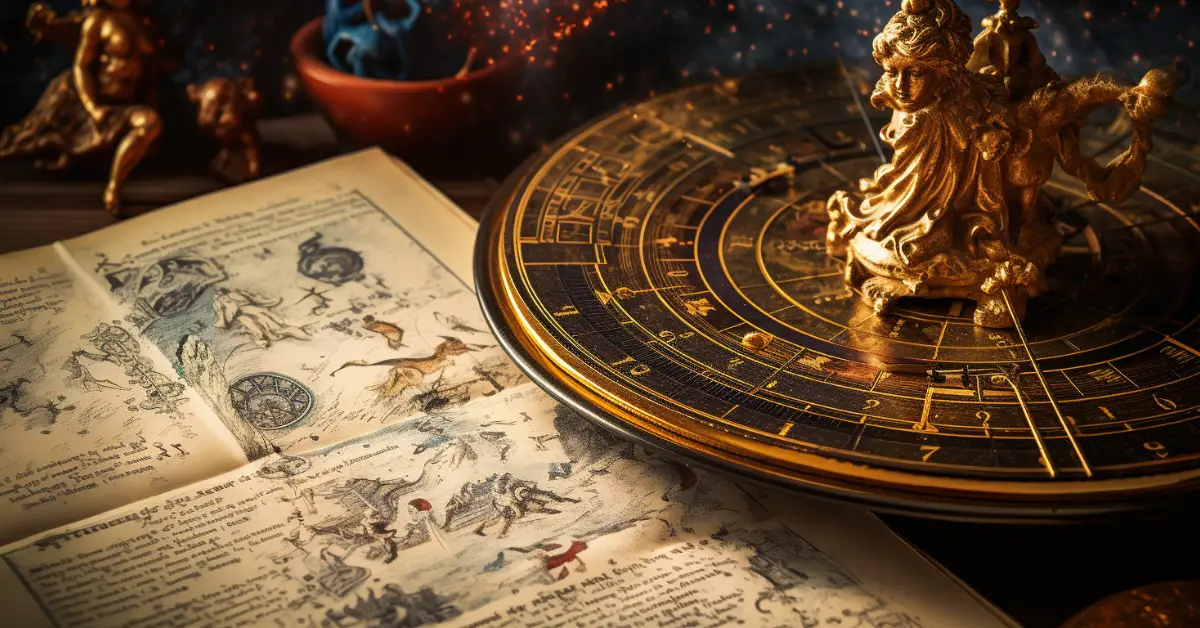Astrology and the Bible are topics often considered separately. Many wonder if looking to the stars for guidance is allowed by Christian doctrine. The Bible’s stance on astrology is one of caution, warning followers to avoid practices that attempt to predict the future or divine information, emphasizing faith in God’s plan instead. Astrology, being a method to interpret the stars and planets to foretell events, diverges from biblical teachings, as it can lead one to put faith in creation rather than the Creator. However, there’s a bit more to it.
Wondering about the Bible’s full take on astrology? It’s richer and more nuanced than a quick glance might reveal! Delve deeper to uncover what scripture truly conveys about the stars and their place in our lives.
What Does the Bible Say About Astrology?
The Bible contains various passages that illustrate God’s view on astrology. The fundamental theme is that God alone holds the knowledge of the future, and attempts to gain such knowledge through astrology are discouraged. In the Old Testament, astrologers are often depicted in negative light, seen as unable to comprehend God’s magnificent creation.
The Bible portrays astrology as incompatible with the essence of Christian faith, which is to trust in God’s sovereignty and providence. This trust in God is paramount, and turning to the stars instead could be seen as a form of idolatry. When we lean on astrology for guidance, we may, unwittingly, be placing creation above the Creator, leading us away from the essence of Christian faith.
In the New Testament, emphasis is placed on a direct relationship with God through Jesus. The birth of Jesus is, interestingly, related to a star, leading the Magi to Bethlehem. However, the focus remains on God’s revelation through the star rather than the star itself. This emphasizes the divine over the celestial, indicating that the stars are creations of God meant to declare His glory, not to govern our lives or predict our futures.
Astrology may offer a form of comfort and a semblance of control in an unpredictable world, but the Bible encourages believers to find comfort and guidance in God, who controls all things, and in His word, which is a lamp unto our feet.
Bible Verses About Astrology
Isaiah 47:13-14 is quite clear on God’s view of astrology. It warns of the futility of astrologers and their inability to save. This serves as a reminder to depend solely on God, the only One who can truly save and guide.
In Deuteronomy 4:19, there’s a warning against being ensnared by the allure of the celestial bodies and worshipping them, emphasizing that they were created by God for all of humanity. This reinforces the idea that while the celestial bodies are magnificent, they are not divine and should not be revered as such.
The Book of Daniel also offers insights, portraying astrologers as unable to interpret King Nebuchadnezzar’s dream. This highlights their limitation and the supremacy of God’s wisdom over human attempts to discern the future or the divine.
Jeremiah 10:2 advises not to be dismayed by the signs of the heavens, stressing that the customs and beliefs of the nations are not applicable to the followers of the true God.
In the New Testament, Acts 16:16-18 narrates an instance where Paul encounters a slave girl with a spirit of divination. He eventually casts out the spirit in the name of Jesus, demonstrating the power of God over any form of divination or prediction.
Romans 1:25 warns against worshipping and serving created things rather than the Creator, who is forever praised. This verse underscores the sin in allowing anything, including astrology, to take the place of God in our lives. It’s a reminder that our adoration and reverence should be directed to God alone, the maker of heaven and earth.
Leviticus 19:26 tells the Israelites not to practice divination or seek omens. It emphasizes God’s desire for His people to be set apart, to live in holiness, and to seek His will above all else, not relying on practices that attempt to foretell the future.
Leviticus 20:6 explicitly states that if a person turns to mediums and necromancers, prostituting themselves by following them, God will set His face against that person and will cut him off from among his people. This stern warning illustrates the seriousness with which God views any form of practice that seeks to bypass Him to gain knowledge or insight.
Colossians 2:8 advises believers to be wary of being taken captive through hollow and deceptive philosophy, which depends on human tradition and the elemental spiritual forces of this world rather than on Christ. This reinforces the New Testament’s overarching theme of the sufficiency of Jesus and the importance of focusing on Him rather than worldly or celestial elements.
Finally, Psalm 147:4-5 marvels at how God determines the number of the stars and calls them each by name. It portrays the greatness of God’s power and His understanding as limitless, unlike humans. The psalm illustrates that while the stars are numerous and magnificent, God’s wisdom and knowledge surpass them all, making Him the ultimate source of guidance and wisdom.
In conclusion, the Bible verses on astrology collectively direct believers to keep their focus, trust, and faith in God and Jesus Christ, not in the stars or any other created entities. They urge avoiding practices that could divert reverence and reliance away from God, who is the Creator, our Savior, and the rightful recipient of our faith and worship. By doing so, believers maintain a relationship with the Almighty, leaning on His wisdom and understanding, which far exceed what the celestial bodies can offer.


